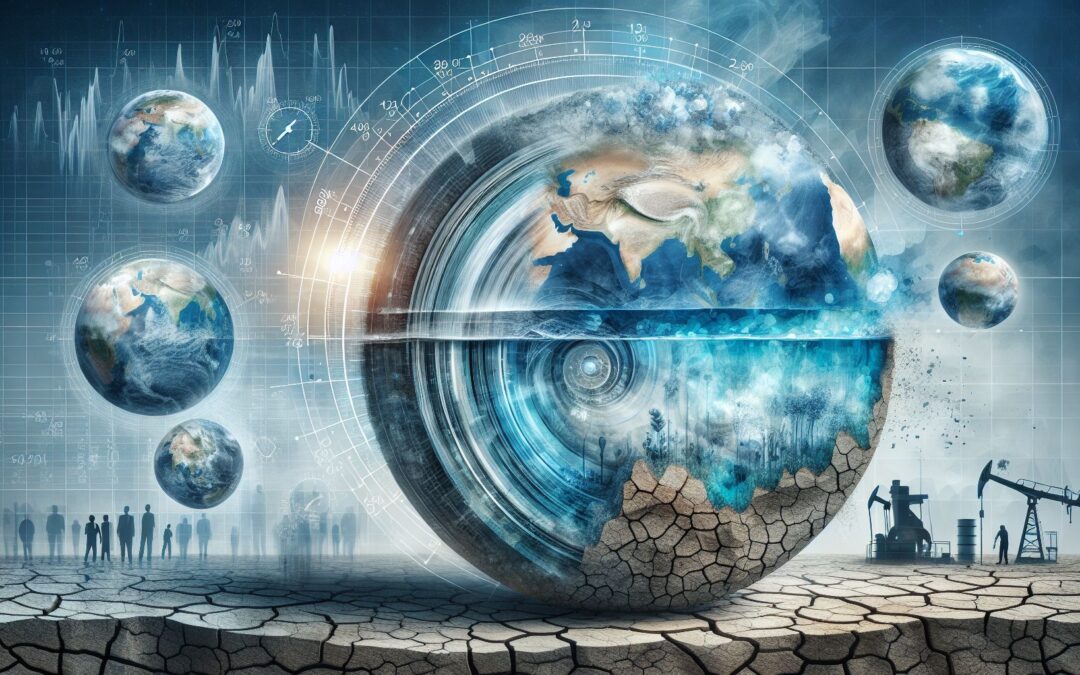Global water security is a growing issue, with numerous studies indicating that access to clean, potable water is becoming increasingly scarce. An often overlooked aspect of this crisis is groundwater depletion. As the demand for water continues to rise, groundwater resources, the largest source of fresh and readily available water on earth, are rapidly depleting. This constitutes a significant threat to global water security, with impacts on food and energy production, economic development, and environmental sustainability.
The Importance of Groundwater
Groundwater makes up over 97% of all available freshwater on earth[^1^]. It feeds rivers and lakes, supports agriculture and industry, and provides drinking water for people in both urban and rural areas. Groundwater is also a vital resource during prolonged periods of drought as it can act as a natural buffer and reduce vulnerability to climate change. Its role in maintaining the health of ecosystems and biodiversity makes it indispensable.
The Scale of Groundwater Depletion
Over-exploitation of groundwater resources is a global problem. Globally, water extracted from groundwater resources has tripled in the last half-century, and 20% of the world’s aquifers are being overdrawn[^2^]. In arid and semi-arid regions, groundwater is often the only source of water supply, and the level of exploitation is even higher. Yet, this crisis receives far less attention compared to surface water issues.
Causes of Groundwater Depletion
The main causes of groundwater depletion are excessive extraction, climate change, and misuse.
- Excessive Extraction: The rising demand for water in agriculture, industry, and domestic uses have led to over-extraction of groundwater. The green revolution and the shift to high-yield, water-intensive crops have significantly increased the stress on groundwater resources.
- Climate Change: Changes in precipitation patterns can affect groundwater recharge rates. Higher temperatures mean more evaporation, leading to less water infiltrating down to replenish aquifers.
- Misuse: Lack of knowledge, poor management practices, and the absence of enforcement of existing regulations can lead to wasteful use of groundwater.
Consequences of Groundwater Depletion
The depletion of groundwater has far-reaching consequences:
- Reduced Water Security: As a major source of potable water, groundwater depletion threatens drinking water supplies, particularly in areas where it’s the only water source.
- Environmental Impact: Groundwater depletion can lead to subsidence, a gradual sinking of the Earth’s surface, and damage to ecosystems.
- Agricultural Impact: Agriculture accounts for approximately 70% of global freshwater use, and groundwater is a critical resource. Its depletion could severely affect food production.
- Economic Impact: The economic cost of groundwater depletion can be enormous, encompassing the costs of drilling deeper wells, damage due to land subsidence, and losses in agricultural production.
Addressing Groundwater Depletion
Addressing groundwater depletion requires a mix of policy, management, and technological interventions. Promoting sustainable use through effective groundwater management systems, implementing and enforcing legal frameworks, investing in data collection, and monitoring systems to understand groundwater dynamics, and promoting water-saving practices and technologies, are all essential to curb depletion.
Moreover, raising awareness about the importance of groundwater and the threats posed by its over-exploitation is vital. Groundwater is a hidden resource and its invisibility contributes to its neglect. Making it a central focus in discussions about water security, climate change, and sustainable development is necessary for its preservation.
In conclusion, groundwater depletion is a silent crisis that threatens to destabilize the world’s water security, undermine development, and exacerbate environmental issues. It requires urgent attention and action to ensure that future generations have access to this precious resource.
[^2^]: “21 million wells show world’s groundwater running low | National Geographic”

